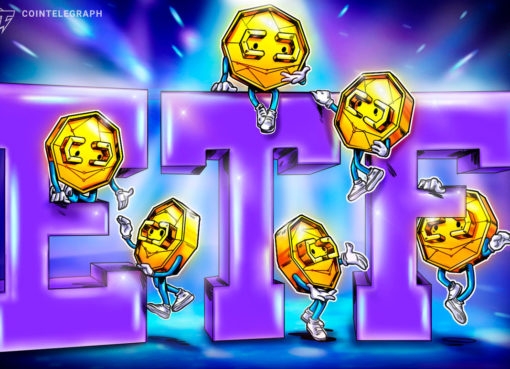In light of the recent ban on crypto mixing tool Tornado Cash and the subsequent arrest of the Tornado Cash developer, there has been a growing debate over whether crypto services providers would choose decentralization or censorship as form of compliance.
The question has become more prominent as Ethereum is moving from its current proof-of-work (PoW) blockchain to a proof-of-stake (PoS) mining consensus. With the transition less than a month away, a user pointed out that more than 66% of validators on the Beacon Chain (Ethereum PoS chain) will adhere to the United States Department of the Treasury’s Office of Foreign Assets Control (OFAC) regulations.
Start with the big, current one.
Currently it looks like over 66% of the beacon chain validators will adhere to OFAC regulations, @LidoFinance @coinbase @krakenfx @stakedus @BitcoinSuisseAG pic.twitter.com/qyq23tPnqV
— eylonverse X (@TheEylon) August 14, 2022
When asked whether Coinbase and others would choose to adhere to compliance requests and impose protocol-level censorship or shut down staking services, Brain Armstrong, the CEO of Coinbase, chose the latter. Armstrong said:
“It’s a hypothetical we hopefully won’t face. But if we did we’d go with B I think. Got to focus on the bigger picture. There may be some better option (C) or a legal challenge as well that could help reach a better outcome.”
First group of centralized #ethereum validators to answer my question say they would rather wind down their staking program than enable on-chain censorship at the protocol level in the ethereum blockchain. https://t.co/pKG8X50hDa
— Lefteris Karapetsas | Hiring for @rotkiapp (@LefterisJP) August 17, 2022
There was growing speculation about the actions of Coinbase, Kraken and other prominent crypto exchanges that are also key ETH validators on the Beacon Chain.
Related: Tornado Cash ban could spell disaster for other privacy protocols — Manta co-founder
Many believed that centralized crypto exchanges would take the easy way out and impose protocol-level censorship rather than block individual transactions from banned crypto mixers such as Tornado Cash.
U.S. validators (which includes very powerful Coinbase) are gonna push for protocol-level censorship
They can’t self-help by merely avoiding facilitation of blocks containing U.S.-sanctioned txs, because under certain conditions they might be dramatically slashed from doing so.
— _gabrielShapir0 (@lex_node) August 13, 2022
The current dilemma comes from the OFAC sanctions that have deemed all Tornado Cash transactions illegal. However, decentralized finance (DeFi) experts believe it has complicated the issue. Instead of sanctioning a particular address or country, the regulators have decided to ban the protocol.
Here’s the list of Tornado Cash resources that were banned
– Tornado Cash @GitHub organization
– personal @GitHub accounts of TC contributors
– all $USDC on Tornado Cash contracts @circlepay
– @infura_io RPC
– @AlchemyPlatform RPC
– https://t.co/SHvgEjTOMV domain @eth_limo— ️ Tornado.cash ️ (@TornadoCash) August 9, 2022
Experts believe a decision to ban would discourage many protocols and exchange operators from engaging with anything related to Tornado Cash, including ETH transacted through the mixer, which could lead to unnecessary censorship.




